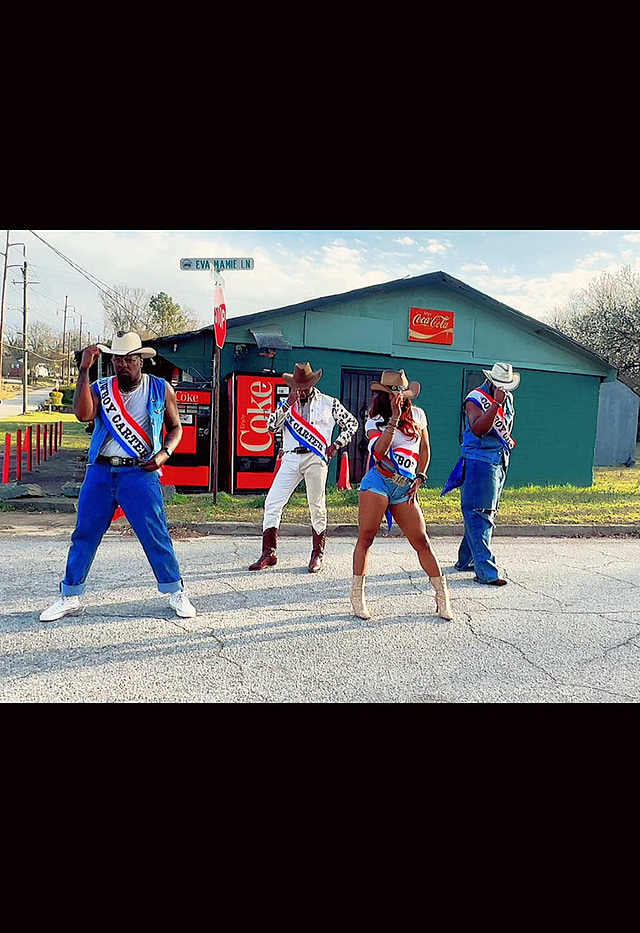“The Beyoncé Effect is giving a lift to our business and contributed to our strong fourth-quarter results.”
-Michelle Gass, CEO, Levi Strauss & Co.
When Beyoncé released Cowboy Carter on March 29, 2024, one could guess that Levi’s would benefit in some way from “Levii’s Jeans,” but few could have predicted just how financially significant one track would be for Levi Strauss & Co. Within a week, Levi’s stock jumped 20%, driven largely by the cultural wave Beyoncé stirred. In September 2024, Levi Strauss & Co. launched the global REIIMAGINE campaign with Queen Bey herself, resulting in net revenues rise 12% and net income jump 44% to $183 million by the end of Q4 2024.
According to The Harris Poll, one in four Black Americans consider themselves part of the BeyHive—nearly double the national average — and 76% of Black people consider themselves to be a Beyoncé fan. In addition, Nielsen recently reported that “Black millennials (between 18 and 34-years-old) spend the most time on social media among all adults by almost an hour per week,” so not only are Black Bey fans supporting her, they are talking about it all over social media.
Once the campaign launched, Black women were activated in the marketing rollout with content recreating the ad creative on platforms like TikTok:
And the BeyHive got in formation, hashtagging the brand in their posts.

 Tiktok failed to load.
Tiktok failed to load.Enable 3rd party cookies or use another browser
So it’s no surprise that one Black woman, steeped in Black culture (including our roots in country music), with a large Black fanbase that over-indexes on social media, drove meaningful financial gains for a 171-year-old American denim company. This is the power of the Beyoncé Effect that Levi Strauss & Co CEO Michelle Gass spoke about.
Concurrently, in April 2025, Levi Strauss & Co. shareholders overwhelmingly rejected a proposal to dismantle the company’s DEI programs—with less than 1% in support. The proposal, brought by conservative think tank NCPPR, argued DEI initiatives cause division and stigma. Levi’s leadership, including CEO Michelle Gass, reaffirmed the company’s long-standing commitment to diversity, citing its business value and alignment with Levi’s core values.
And yet, as praise rolls in for Levi’s latest campaign and its recent board vote to maintain DEI initiatives, it’s worth asking a deeper question: What has Levi’s done to invest into Black talent, entrepreneurs, and communities?
Here’s what we know:
In 2024, Levi Strauss & Co. published their latest DE&I Impact Report, as well as the Levi Strauss Foundation community partner report.
Overall:
Levi’s reported representation over indexes in some areas like corporate leadership and total workforce, under indexes in other areas, but is not transparent in terms of full EEO-1 reporting; however, the company did report the following in 2023:
With LSC’s recent statement reconfirming their commitment to DEI, it will be important for them to report how those practices are benefitting Black employees and entrepreneurs — transparency around Supplier Diversity and other policies will be key.
Out of 74 organizations, the Levis Strauss Foundation partnered with at least four that were Black-centered, while others were BIPOC or had broader focuses.
LS&C responded to the backlash around AI models with the following statement:
We do not see this pilot as a means to advance diversity or as a substitute for the real action that must be taken to deliver on our diversity, equity and inclusion goals and it should not have been portrayed as such.
Cultural Currency isn’t free.
Levi’s is making a big strategic bet on associations with music, sports, and entertainment, which is evident in the recent hiring of a new (Black) head of Sports, Music and Collaborations Marketing. But as we step into a new era, where corporations are backtracking on racial justice commitments made in 2020, we have a presidential administration that promotes anti-DEI and anti-Black policies, and the racial wealth gap widens…
…it is IMPERATIVE for corporations to dig deeper. It’s also a good time to remind companies that as tariffs impact their businesses, consumers have choices, and Black consumers can and will choose companies that are values-aligned.
Because representation is not a substitute for reinvestment — true equity requires consistent, transparent investments. And while the imagery of Beyoncé in a cowboy hat and Levi’s jeans is iconic, so is the economic opportunity it generated. If corporations can gain millions off of Black culture, they can also reinvest millions into our communities.
So we’re calling for receipts. With Levi Strauss & Co’s public recommitment to DEI, we encourage their leadership to be transparent about:
Its Black supplier spending
Its recruitment and advancement of Black professionals internally
It’s investments in Black communities and organizations. Was a large philanthropic donation made to BeyGood and/or other Black-centered organizations to advance economic opportunity?
It’s time to REIIMAGINE how Black culture is rewarded for driving product awareness and sales.
Read our earlier coverage on the Beyoncé x Levi’s partnership here.
Be informed.
Check out the Black Dollar Index Shop for merch that goes towards our mission to create a more equitable relationship between corporations and Black communities.
The Black Dollar Initiative is the indpendent 501(c)(3) research and data hub that powers the Black Dollar Index. Your donation will go towards helping us research, analyze, and report over 120 corporations across 15+ data points. Donations are tax-deductible (EIN: 85-2383485).














I would truly love to see us buying Levi stocks rather than jeans. I haven't owned a pair of them since 1988.